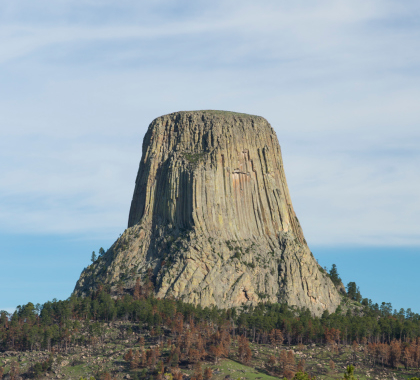Utah lawmakers have set aside $4.5 million to pay for expenses related to the state’s attempt to gain control of 30 million acres of national forest and Bureau of Land Management-controlled acreage within its borders.
House Bill 287—passed during Utah’s 2016 legislative session, which ended in March—establishes a special public-lands litigation account to fight the U.S. Department of Interior to gain lands proponents say were promised at statehood and to force the federal government to comply with a state law Utah passed in 2012.
In Utah, nearly 70 percent of the state is owned by the federal government, limiting the state’s control over land uses, such as grazing, oil and gas development, and forest management. Proponents of the legislation argue such a high percentage of federal ownership puts the state at an economic disadvantage compared to many other states on the East Coast.
Dissatisfaction with Federal Land Ownership
Shawn Regan, a research fellow at The Property and Environment Research Center, co-authored a report titled “Divided Lands: State vs. Federal Management in the West,” which compares state and federal land management in four Western states. The study shows the federal government loses money managing valuable natural resources on federal lands, while states generate significant financial returns from state trust lands.
Regan says one key difference between federal and state land management is states have a fiduciary responsibility to generate revenues from state trust lands, while federal land agencies face overlapping and conflicting regulations and often lack a clear mandate.
“These lawsuits emanating from Utah show the dissatisfaction the people have with federal land management policies there,” Regan said. “Federal ownership reduces the tax base and insures there is less resource development. Utahans have good reason to believe they could manage federal lands better than Washington, DC.”
East-West Divide
The origins of Utah’s legal campaign advocating for the return of federal lands to the state began in March 2012, when state Rep. Ken Ivory (R-West Jordan) introduced House Bill 148, which requires the federal government to give back more than 20 million acres to the state.
Ivory says although the federal government ignored the law and its 2015 deadline to return federal lands to the state, there has been a wave of support to return federal lands to the Western states since HB 148 became law on March 23, 2012.
Arkansas, Georgia, South Carolina, and Tennessee have all passed resolutions supporting the transfer of federal lands back to Western states, and the 2016 Republican Party platform included a provision in support of this movement as well.
“Congress shall immediately pass universal legislation providing for a timely and orderly mechanism requiring the federal government to convey certain federally controlled public lands to states,” reads the GOP platform’s plank.
“We are never going to prosper as a country with more than 50 percent of the land in Western states locked up and mismanaged by the federal government, which takes a museum approach to federal land management: You can look but can’t touch,” Ivory said. “There is a modern-day environmental, economic, and constitutional renaissance waiting to happen, and all we have to do is return to our promise as a nation to treat Western states the same as the Eastern ones, where only 5 percent of the land is held by the federal government.”
Kenneth Artz ([email protected]) writes from Dallas, Texas.
INTERNET INFO
Shawn Regan and Holly Fretwell, “Divided Lands: State vs. Federal Management in the West,” The Property and Environment Research Center, March 3, 2015: https://heartland.org/publications-resources/publications/perc-report-divided-lands—state-vs-federal-management-in-the-west


